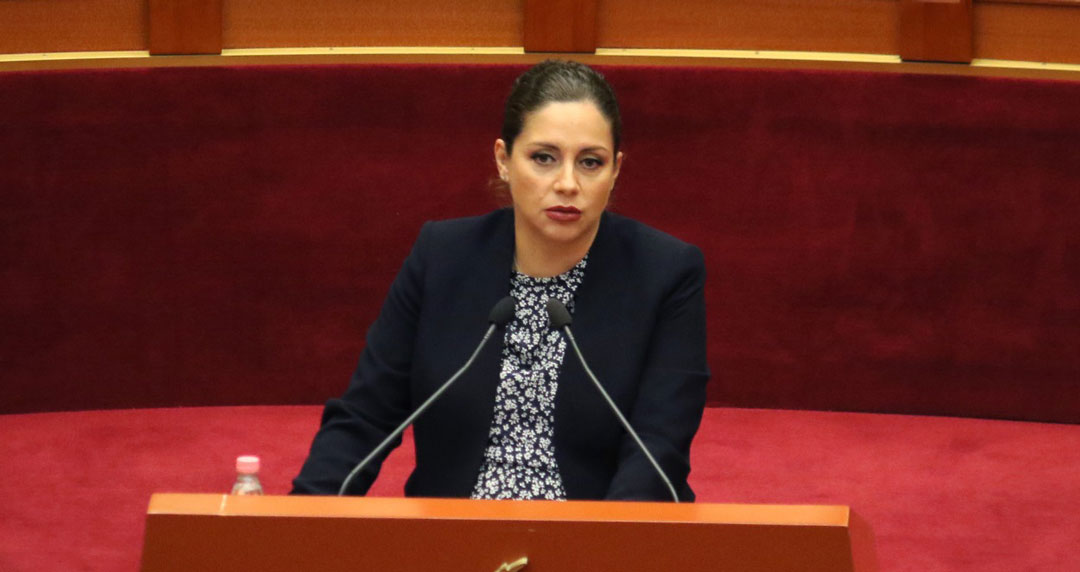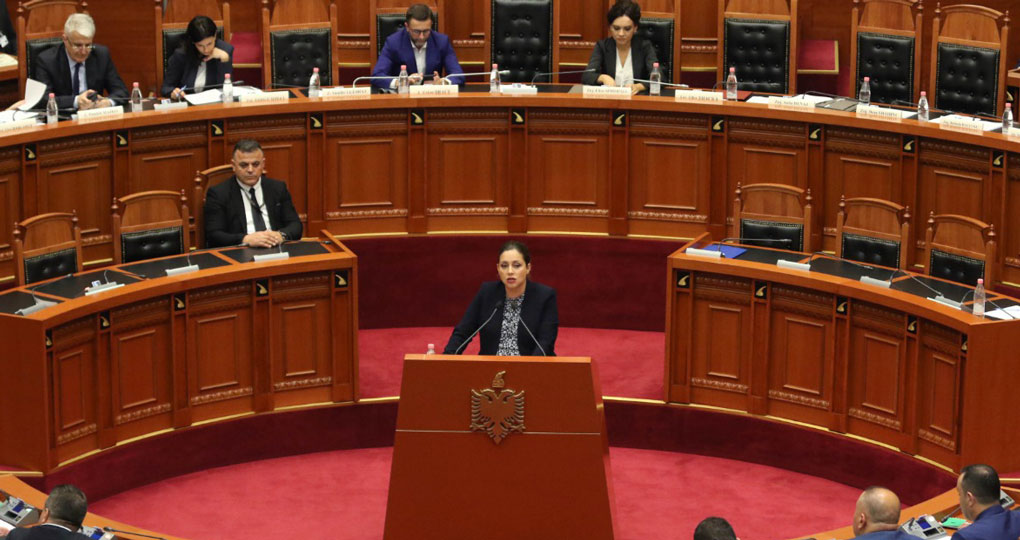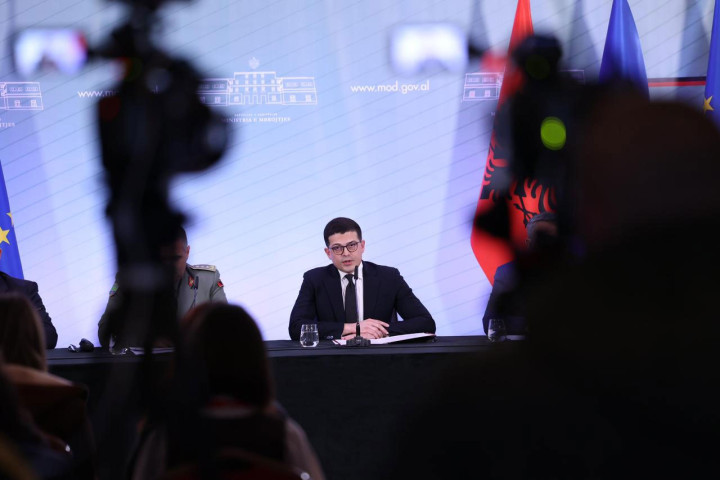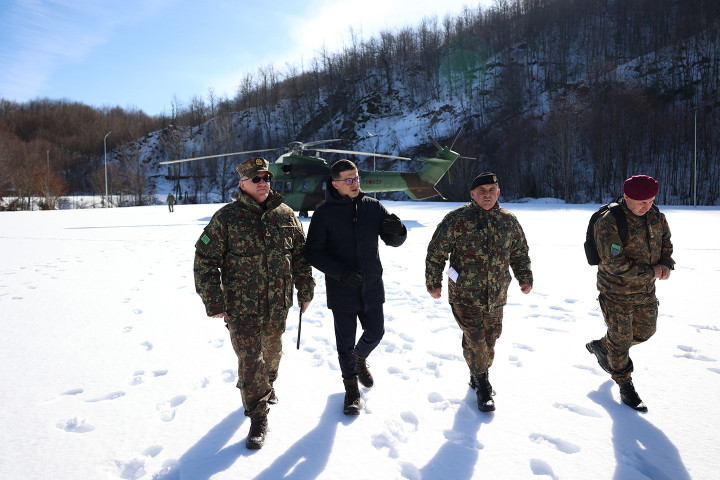Defence Minister’s speech on the earthquake of 21 September addressed to Albanian Parliament in Plenary Session
-
Published: Sunday, 29 September 2019 12:36

Just over a week ago our country was hit by a large-scale seismic event. An earthquake of magnitude 5.8 on the Richter scale shook the citizens, especially in Tirana and Durrës, which were also the most affected areas even though the earth's shaking was felt all over the country and in neighborhood.
The main data about this event, I believe, you and all the citizens already know , because we have had a constant communication. But I want to make a brief summary of what happened, and also of what we are currently doing to cope with the consequences.
The earthquake of 21st of September was the strongest earthquake our country has experienced in the last decades. The damage caused is considerable, but I believe we were very lucky that there were no casualties. Furthermore, there were no serious injuries. There are a total of 154 people injured, in almost every case with minor injuries, mostly caused by panic after the stroke, when citizens tried to leave their homes. I say lucky, because from earthquakes of that magnitude you can expect the worst, as our neighbor countries' not-so-distant history has shown us. And no damage, however big, cannot be equated with a single life lost.
But on the other hand, the material damages are considerable. From the data we have so far, there are hundreds of houses that have damage, which makes them uninhabitable. It concerns, in almost every case, in old dwellings, or dwellings built outside any technical safety criteria. There are also 3 buildings, which were damaged that makes them uninhabitable, but there are also many other dwellings, some schools or a number of other facilities with different functionalities, that were damaged in various levels ranging from simple cracks to the most serious but recoverable damage to the structure.
So, just by having a look at the numbers we have stated earlier, to understand what serious seismic events we have faced. However, I am proud that the response of the state and institutions to this event, from its earliest moments, has been at a different level from any emergency situation we have faced in the past, either in terms of time or in terms of coordination or in terms of reaction efficiency.
In short, as rarely before, the entire state has been standing in the early moments after the earthquake to cope with this serious event. Thus, only a few hours after the earthquake stroke, the Civil Emergency Planning and Emergency Management Committees were gathered immediately, under the direction of the Civil Emergency Directorate, where emergency measures were taken to cope with the situation.
Reinforced teams of doctors and health workers have been on readiness since the early hours to help the injured. And we are witnessing how any injured person is assisted and treated within few hours, even in the first hour after the major seismic shock. State Police, Municipal Police officers, emergency staffs at prefectures, or local units and the Armed Forces were also on full alert during this time.
Since the night of 21, a few hours after the earthquake, 9 reception sites were set up in Tirana and Durrës, in social shelters, or in tents erected by the Armed Forces, for those citizens who could not stay in their homes because of damages or the uncertainty of staying in these dwellings. Or because of the fear that was certainly great and the hits that followed the 16.05 earthquake.
And, as I already said above, we were lucky because an earthquake of this magnitude could have been caused greater economic damage and loss, and of course in human lives. But the state's response to the earthquake left nothing to chance. It responded in the most urgent, most efficient way possible, mobilizing even more resources and capacities than were ultimately needed.
But, at any point in those days, the priority was to help every citizen everywhere, so it would be better to have mass mobilization rather than modest mobilization as a consequence of which there would be either a citizen or a non assisted family.
The reaction to the earthquake of 21st September was in fact another test of the new Civil Protection Mechanism, which was approved by the Assembly on 9 July. Although this mechanism is in its first stages, today - the bylaws have not yet been approved and new structures have not been implemented as it is predicted and nor have the development of risk assessments and risk management strategies at the local and national level been drafted - so even though it is just the beginning and there is still much work to be done until the Civil Protection Mechanism will be fully operational, everything has worked in a much more efficient way than before. There is no doubt that the potential of this new mechanism is extraordinary and proves that we have done the right thing by adopting a model of Civil Protection, as advised by our American and European Allies.
And I believe that the latest event will serve as a further incentive to accelerate the work, to the full extent of this mechanism, which will not only help to make Albanian citizens feel safer, but also allow us to become a member of the European Center for Emergency Response Coordination, which means faster access to European assistance in case of emergencies, but also the opportunity for Albania to assist its resources in case of need from other member states.

But no matter how dramatic the earthquake of 21 September was, the real challenge for all of us began after the earthquake. The emergency response was just the beginning. Damage recovery is the most difficult challenge because the damage is enormous and every country, however developed or wealthy, finds it difficult to cope with such an amount of damage in such a short time.
A homeless, temporarily sheltered family, of course, has understanding and patience, but this patience has a limit and this understanding is shorter than our capacity to recover the damaged housings. Of course we have learned a lot from the way the earthquake consequences were handled in Korça, but no one should think, as the earthquake passed, that this would be an easy challenge.
On the other hand, I believe that the Albanian citizens today know from experience that the whole state is standing up for you in their difficult day. This engagement, this post-earthquake mobilization, has begun in record time and it continues. Complete identification of damages, scanning of the situation and work on their rehabilitation has proceeded at an extremely rapid pace and intensity compared to any emergency in the past that Albania has faced in recent years or decades. Since September 22nd, not even 24 hours later, thanks to the work of the Emergency Staffs, State Police, Armed Forces, Water and Sewerage, OSHEE and the very good work of the Ministry of Infrastructure and Energy, every road in Albania was accessible, water and power supply was restored to all areas, every school, kindergarten and nursery was vetted and opened, with the exception of a very small number of schools where the work we are talking about today is to open within a few days. The same thing has happened with health centers throughout the affected areas. The Police Force, Municipal Police, emergency staff, doctors and the Armed Forces, any local and central capacity needed to cope with this situation, have been on a daily standby to address any situation where their intervention was needed.
Not only that - and here I would like to take this opportunity to thank them - my colleagues, ministers, deputy ministers and many senior executives of all levels, who are personally engaged, with no time off and day off, in order to cope with the situation and supporting the citizens by being close to them, but also contributing funds, finances, and material goods to the most affected families and to the most difficult.
I would also like to thank the European Civil Protection colleagues, who, even though Albania is not a member, have come to our aid either with their equipment or their expertise.
These days have also been days of incredible solidarity because many businesses and individuals have joined us in our work, contributing through assistance, through the engagement of experts in engineering and urban planning to assessing damages, and to assisting even within recovery phase.
The good news is that a special fund has already been set up for the recovery and reconstruction of each affected dwelling, where many businesses and individuals, or even foreign donors, who are committed to donating funds, are being engaged in contributing in addition to the government and institutions, which today cannot be specified yet, because the process is in its first stages. But by watching the fundraising process, I am very optimistic that as we have done in Korça and Tirana and Durrës we will be able to recover any damage, to return the dwellings to the citizens.
Meanwhile, for those citizens who, understanding the dimensions of the challenge that the state faces, have expressed a willingness to rebuild their homes themselves, measures are being taken to simplify the procedures for building permits.
I believe the way the institutions have responded and how the whole country has stood up to deal with the earthquake of 21September is the clearest indication that citizens' safety is now guaranteed in a much more efficient and consolidated way than before.
Articles from Newsroom
Monday, 26 January 2026



Defence Minister Vengu hosts Belgian counterpart: Cooperation to strengthen our capabilities
Tuesday, 20 January 2026
Albanian Air force trains with the U.S. Air Force, focusing on rapid crisis response
Monday, 19 January 2026